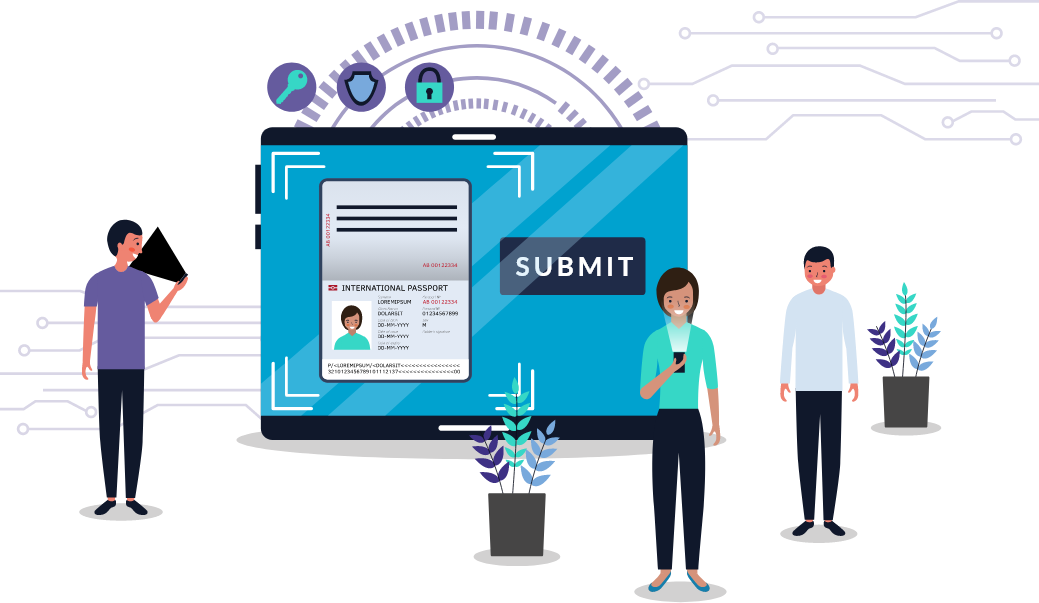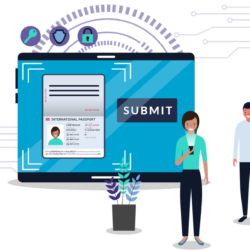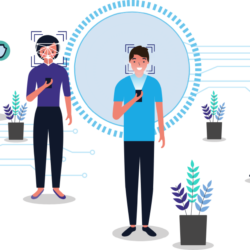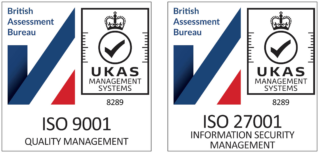Hundreds of identity checks, training updates and uncovering fake documents: all in a day’s work for a member of our helpdesk team…

Following on from our earlier blogs on our Helpdesk team, in this blog we talk to one of our most experienced Helpdesk team members, Orsi. She tells us what the role entails on a day to day basis and how it has evolved over time, as well as about her experience with fake identity documents…
Q: Tell me how you came into the role in the TrustID Helpdesk team?
“I joined TrustID at the end of November 2017 from a big bank. I’ve always been interested in counter fraud and forensics and when I saw this job, it seemed like it would be the perfect fit. As part of my role at the bank, I had first-hand experience of what fraud can look like. People would come into the branch with fake identity documents trying to open an account or access money and it was an important (and interesting) part of my job to spot and stop them. Although at TrustID I don’t see the people themselves, my experience of handling a wide range of documents in the bank definitely gave me a good start in this job.”
Q: How has the role changed since 2017?
“Well, firstly the number of documents which the team here sees has grown more than 10 times! When I started here, I saw maybe 100 documents a day and now I check several hundred. The team has grown hugely too and we now offer support 7 days a week and until midnight, which is great for our customers.
The types of documents we check is also expanding all the time as we take on different sorts of customers who work in different industries. Some businesses are making checks for Right to Work, some check IDs for students and some are finance businesses making checks on customers.
Q: So, how do you keep on top of your training?
“Well, training is definitely important and as a team, we are all learning all the time. There are a core set of documents which we see regularly, things like British passports, and obviously, it’s easier for us to spot something that’s not right with them. But even then, we are constantly keeping on top of the latest issues and identity features. We have regular update sessions and also use internal training guides. When we need it, we also have access to official sample documents which is useful particularly if it’s a more unusual document that maybe we haven’t seen for a while.
We do a lot of intelligence sharing between us too. For example, when someone else on the Helpdesk team spots something new, like a newly issued document or an unusual fake, they will share it so that way the whole team can learn from it. If I’m unsure, I can always ask for a second opinion on a document from one of my colleagues or escalate it to one of the most senior analysts.
I guess our training is also by doing the job and by constantly being exposed exposure to different scenarios. I’ve assessed over 110,000 documents since I joined so I’ve definitely built up an instinct for when something just isn’t right.”
Q: Across the 110,000 documents you’ve checked, have you seen many fake documents?
“Honestly, I see fake documents pretty much every day! I have to be on my guard all the time. Some fake documents are obvious to me immediately, but we do still see ones which are pretty good attempts and would be understandably tricky for someone in a business to spot. Also, there are some that we know to really look out for – ones that are good quality perhaps from certain countries or in certain sectors. We know that the fraudsters are always trying to find ways to better their fake documents.”
Q: What’s the best part of your job?
“Every day is different. I love the variety of my job and I like knowing that I’m helping to protect a business or even prevent a larger crime. It could be that I’m stopping someone who isn’t who they say they are from getting a job working with vulnerable people or in a high-risk environment. I also know that our service has helped to identify people who involved in larger crimes such modern slavery or international fraud: that makes me feel like I’m doing something worthwhile.”
Want to find out more?
If you’d like to know more about how our expert helpdesk team works and how they could support your business, please get in touch.
Sign up to receive updates
Receive notifications from TrustID direct to your inbox. Simply fill out your email address in the form below.
Want to find out more?
We’d be really happy to chat through your requirements and offer advice on the best service for your business.
Tel: 0118 466 0822 or email us.
Request a callback


